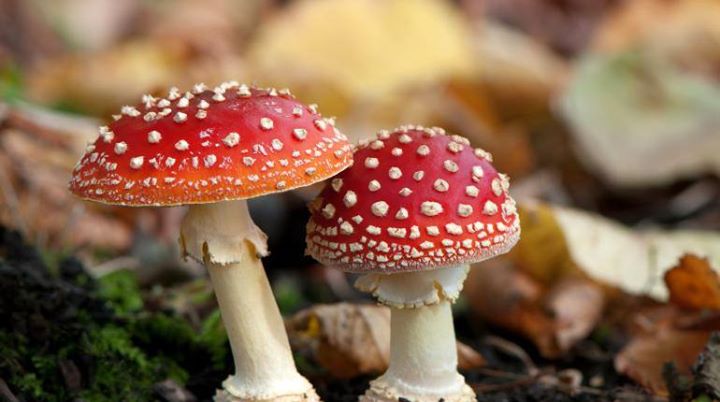 Johns Hopkins researchers report that a small number of longtime smokers who had failed numerous attempts to kick the habit have succesfully quit smoking with the aid of psilocybin – the active hallucinogenic agent in “magic mushrooms” – as part of cognitive behavioral therapy treatment program.
Johns Hopkins researchers report that a small number of longtime smokers who had failed numerous attempts to kick the habit have succesfully quit smoking with the aid of psilocybin – the active hallucinogenic agent in “magic mushrooms” – as part of cognitive behavioral therapy treatment program.
The abstinence rate for study was 80 percent, with 12 of the 15 participants remaining smoke free after six months, a rate much higher than typical in smoking cessation trials, according to Matthew W. Johnson, an associate professor of psychiatry and behavioral sciences at the Johns Hopkins University School of Medicine. Just two or three experiences with the hallucinogenic drug helped a dozen long-term smokers quit, succeeding in a study where numerous other approaches failed.
The researchers, in a report published online today in The Journal of Psychopharmacology, strongly caution that their study results are not an endorsement of do-it-yourself psychedelic drug use for smoking cessation, but instead are specific to the controlled administration of the drug in the context of a treatment program involving cognitive behavioral therapy.
“Quitting smoking isn’t a simple biological reaction to psilocybin, as with other medications that directly affect nicotine receptors,” Johnson says. “When administered after careful preparation and in a therapeutic context, psilocybin can lead to deep reflection about one’s life and spark motivation to change.”
Ten men and five women, all mentally and physically healthy, participated in the study. The average age of the study participants was 51; they smoked, on average, 19 cigarettes a day for 31 years; and had repeatedly tried and failed to stop smoking. Ten participants reported minimal past use of hallucinogens, with the most recent use being an average of 27 years before study intake. Five had never used hallucinogens.
After informing subjects about what their experience with the drug might be like, the first dose of psilocybin was administered by pill the day each participant planned to quit smoking. Two subsequent sessions, with higher doses of the mind-altering drug, were held two weeks and eight weeks later.
During each psilocybin session, which lasted six to seven hours, participants were closely monitored by two members of the research team in a comfortable, homelike setting. Most of the time, participants wore eyeshades and earphones that played music, and they were encouraged to relax and focus on their inner experiences.
The hallucinogenic compound was administered as part of a comprehensive cognitive behavior therapy smoking cessation program that included weekly one-on-one counseling sessions and techniques such as keeping a diary before quitting in order to assess when and why cravings occur.
The researchers, who are part of a team that has long had federal funding to study the psychoactive effects of psychedelic drugs, suggest psilocybin may help break the addictive pattern of thoughts and behaviors that have become ingrained after years of smoking. The benefits also seem to last after the drug has worn off.
Johnson’s next study will compare smoking success rates for people who take psilocybin to those for people who use nicotine patches. He will use MRI scans to study brain activity in participants.
Source: Matthew W Johnson, Albert Garcia-Romeu, Mary P Cosimano, Roland R Griffiths; Pilot study of the 5-HT2AR agonist psilocybin in the treatment of tobacco addiction. J Psychopharmacol September 11, 2014 0269881114548296, DOI 10.1177/0269881114548296
Journal Link: http://bit.ly/1nPyZJm














